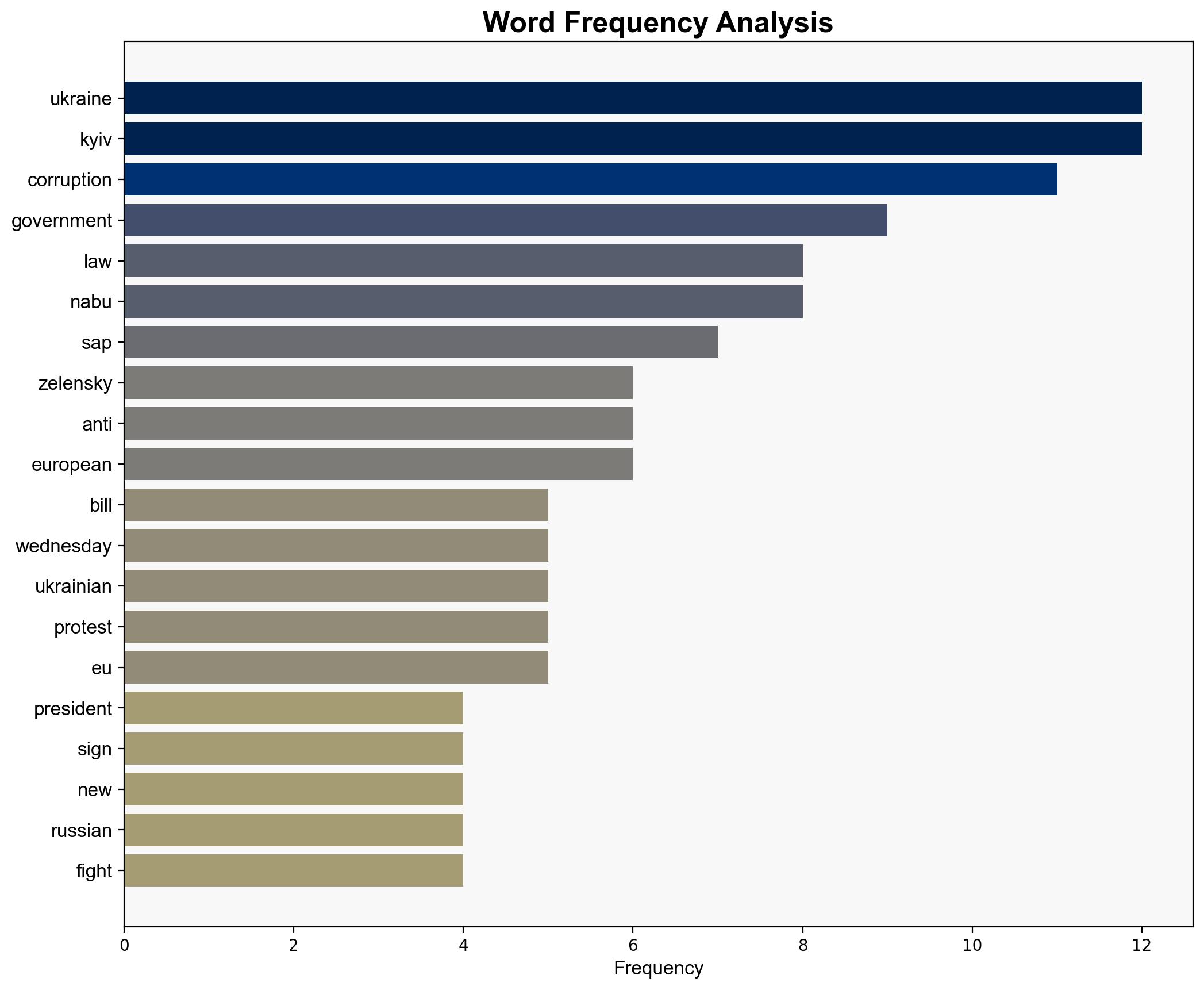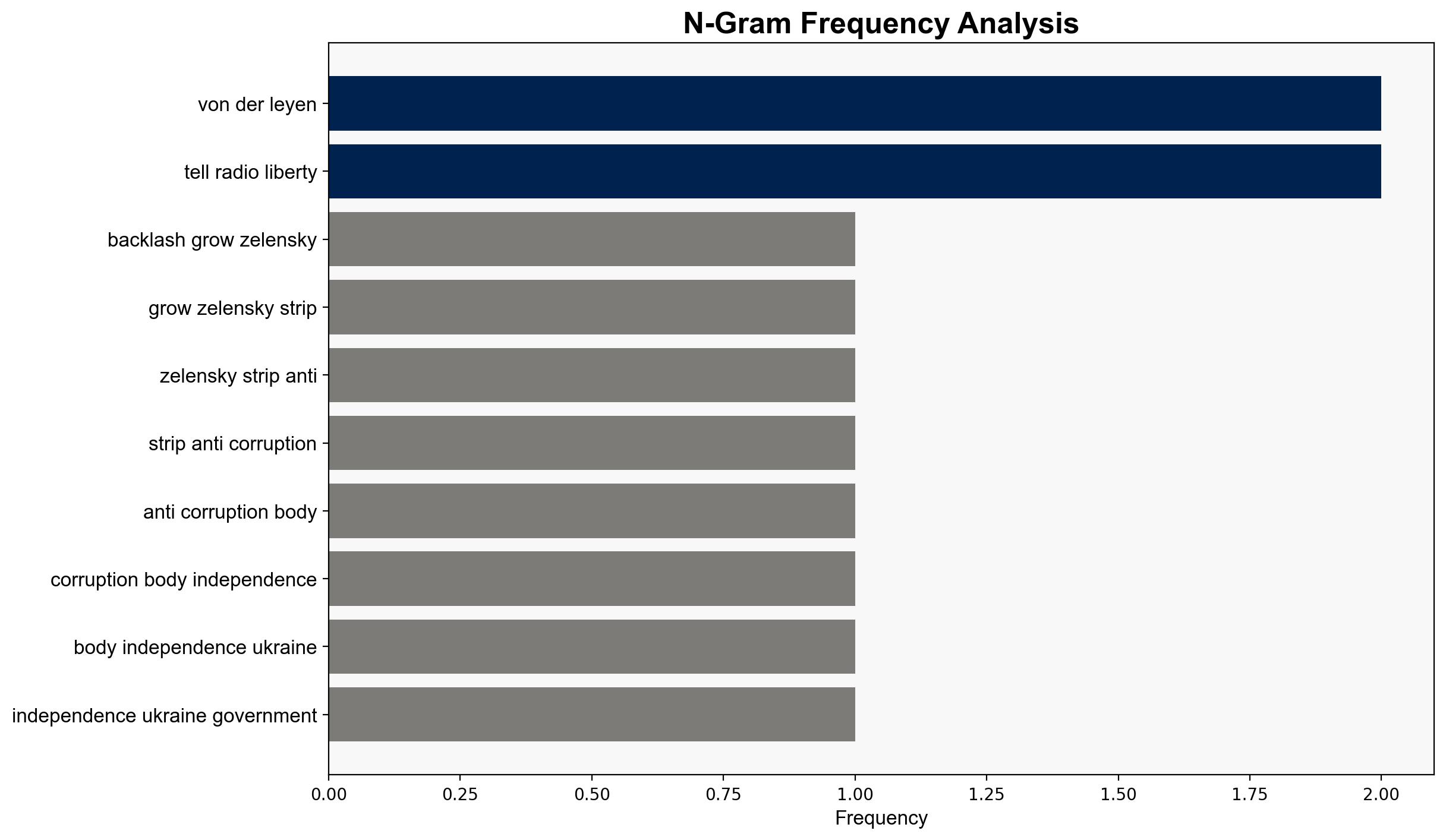Backlash grows after Zelensky strips anti-corruption bodies of independence – BBC News
Published on: 2025-07-23
Intelligence Report: Backlash grows after Zelensky strips anti-corruption bodies of independence – BBC News
1. BLUF (Bottom Line Up Front)
The recent legislative changes in Ukraine, signed by President Volodymyr Zelensky, have sparked significant domestic and international backlash. The law curtails the independence of key anti-corruption bodies, raising concerns about Ukraine’s commitment to anti-corruption reforms and its European Union integration prospects. Immediate diplomatic engagement and strategic reassessment are recommended to address potential destabilization and maintain international support.
2. Detailed Analysis
The following structured analytic techniques have been applied to ensure methodological consistency:
Causal Layered Analysis (CLA)
Surface Events: The signing of the law limiting the independence of the National Anti-Corruption Bureau (NABU) and the Specialized Anti-Corruption Prosecutor’s Office (SAP) has led to widespread protests in Kyiv and other cities.
Systemic Structures: The law centralizes control over anti-corruption agencies, potentially undermining their effectiveness and independence.
Worldviews: The move is perceived as a regression to past governance styles, reminiscent of the Yanukovych era, which could alienate Western allies.
Myths: The narrative of Ukraine’s fight against corruption as a pathway to EU integration is challenged, risking the erosion of public and international trust.
Cross-Impact Simulation
The legislative change may strain Ukraine’s relations with the EU and international financial institutions, affecting economic aid and political support. It could also embolden Russian narratives about Ukrainian governance failures.
Scenario Generation
Best Case: Ukraine revises the law to restore agency independence, regaining international confidence and maintaining EU integration momentum.
Worst Case: Continued erosion of anti-corruption efforts leads to increased domestic unrest and loss of international support, weakening Ukraine’s geopolitical position.
Most Likely: Partial amendments to the law may occur, but significant trust rebuilding will be necessary to restore full international support.
Narrative Pattern Analysis
The current narrative positions Ukraine at a crossroads between reform and regression, with significant implications for its international alliances and domestic stability.
3. Implications and Strategic Risks
The legislative changes pose a risk to Ukraine’s political stability and economic resilience. The potential for increased domestic unrest and international diplomatic friction could undermine Ukraine’s strategic objectives, including EU integration and sustained Western support.
4. Recommendations and Outlook
- Engage in diplomatic dialogue with EU representatives to address concerns and explore potential amendments to the law.
- Enhance domestic communication strategies to clarify the government’s commitment to anti-corruption reforms.
- Monitor public sentiment and protest activities to anticipate and mitigate potential escalations.
- Scenario-based projections suggest that restoring agency independence is crucial for maintaining international support and domestic stability.
5. Key Individuals and Entities
Volodymyr Zelensky, Ursula von der Leyen, Vsevolod Kniaziev, Oleksii Reznikov
6. Thematic Tags
national security threats, governance, EU integration, anti-corruption, Ukraine





